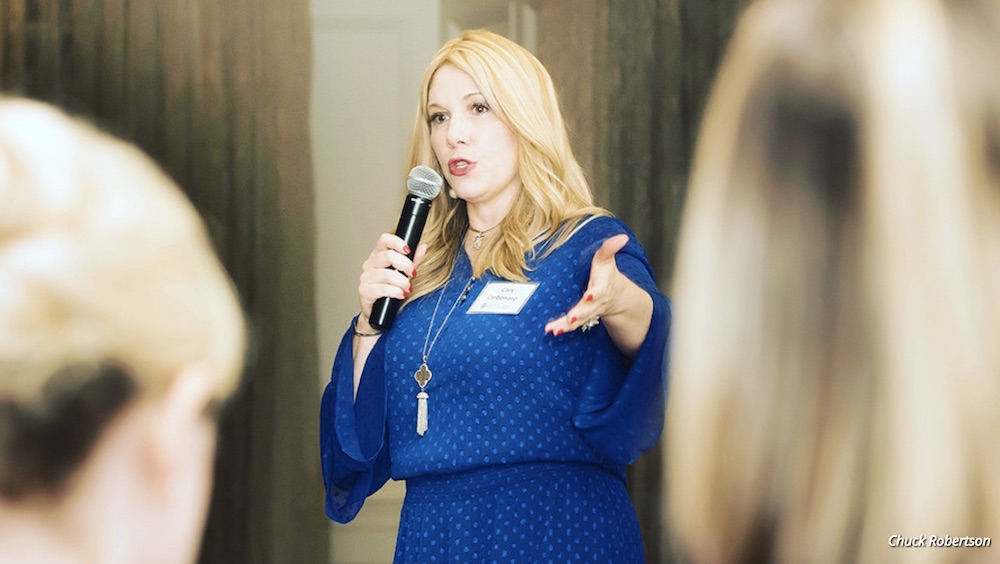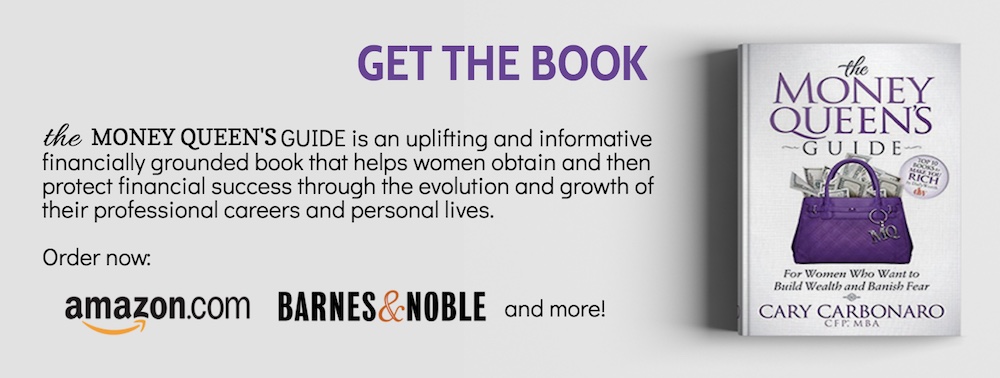
This article was originally published in MarketWatch.
Cary Carbonaro Teaches Women How To Have A Strong Voice In Household Finances
When Cary Carbonaro’s seven-year marriage ended in acrimonious divorce almost a decade ago, she reflected on what went wrong. Letting her emotions control her financial decisions proved a particularly costly mistake.
Carbonaro’s protracted battle to extricate herself from her marriage taught her the value of maintaining a calm, clear perspective on even the most wrenching personal conflicts. A Certified Financial Planner, she vowed then to help women gain financial independence.
Carbonaro, 49, has since applied the lessons of her divorce to assist clients in need. She’s especially attuned to having married women take steps to safeguard their assets and protect their credit.
“My divorce gave me the empathy to say, ‘I know what you are feeling, because I was there,’” said Carbonaro, author of “The Money Queen’s Guide.” “Knowing all the red flags and pitfalls lets me advise my clients better.”
Among her own pitfalls in her marriage: taking out a home mortgage in her name, while agreeing (based on her then-husband’s insistence) to put the legal deed to the property in both their names. As a result, Carbonaro could not sell, rent, or refinance the house after her marriage broke up, even though she was responsible for the mortgage.
‘So few women even know what their husbands make.’
– Cary Carbonaro
Today, she urges clients to enter into marriage with eyes wide open. She instructs each spouse-to-be to engage in full financial disclosure — of their assets, credit history, debts, and investments. They should also reveal the source of all their income. Any reluctance by either party to disclose such financial matters merits attention — and should not be waved off or excused.
“So few women even know what their husbands make,” she said. “Before getting married, they need to find out where all their assets are and the source of all their [household] income.”
When Carbonaro meets a couple, she looks for subtle cues that may signal a rocky road ahead. Examples include how they describe their mate (and their marriage) and discuss their finances.
If a woman seems mystified by her husband’s assets or earnings, Carbonaro might start to suspect something’s amiss. If the client adds, “I want to protect myself,” Carbonaro’s concern spikes.
“Sometimes I’ll feel uneasy based on my gut,” she said. “I see how they talk to each other, how they talk about their goals and money. If one of them, perhaps the woman, is unengaged most of the time and then when she tries to talk, she’s interrupted, that’s not good.”
Carbonaro’s experience gives her credibility to advise women in trouble. But despite her best efforts, her influence has limits. She recalls a female client who was mired in a disastrous relationship with a man who squandered her savings and even crashed her car.
“You’re on a collision course,” Carbonaro warned the client. “You need to see a therapist and deal with this situation.”
The client rejected Carbonaro’s advice and continues to struggle amid her dwindling finances.
Nevertheless, Carbonaro comforts divorcees by providing emotional support. She calls herself “a massive cheerleader” for them. “There are times you’ll think there’s no light at the end of the tunnel,” she tells them. “You’ll think it will never end. I’ve felt all those things that you’ve felt. I’ve lost weight. I’ve gained weight. Your whole life is upside down.”
But she doesn’t just empathize. She says her real value comes from empowering besieged clients to persevere. “This is the lowest point you’ll ever be,” she assures them. “It can only go up from here. I’m proof.”
This article was originally published in MarketWatch.





